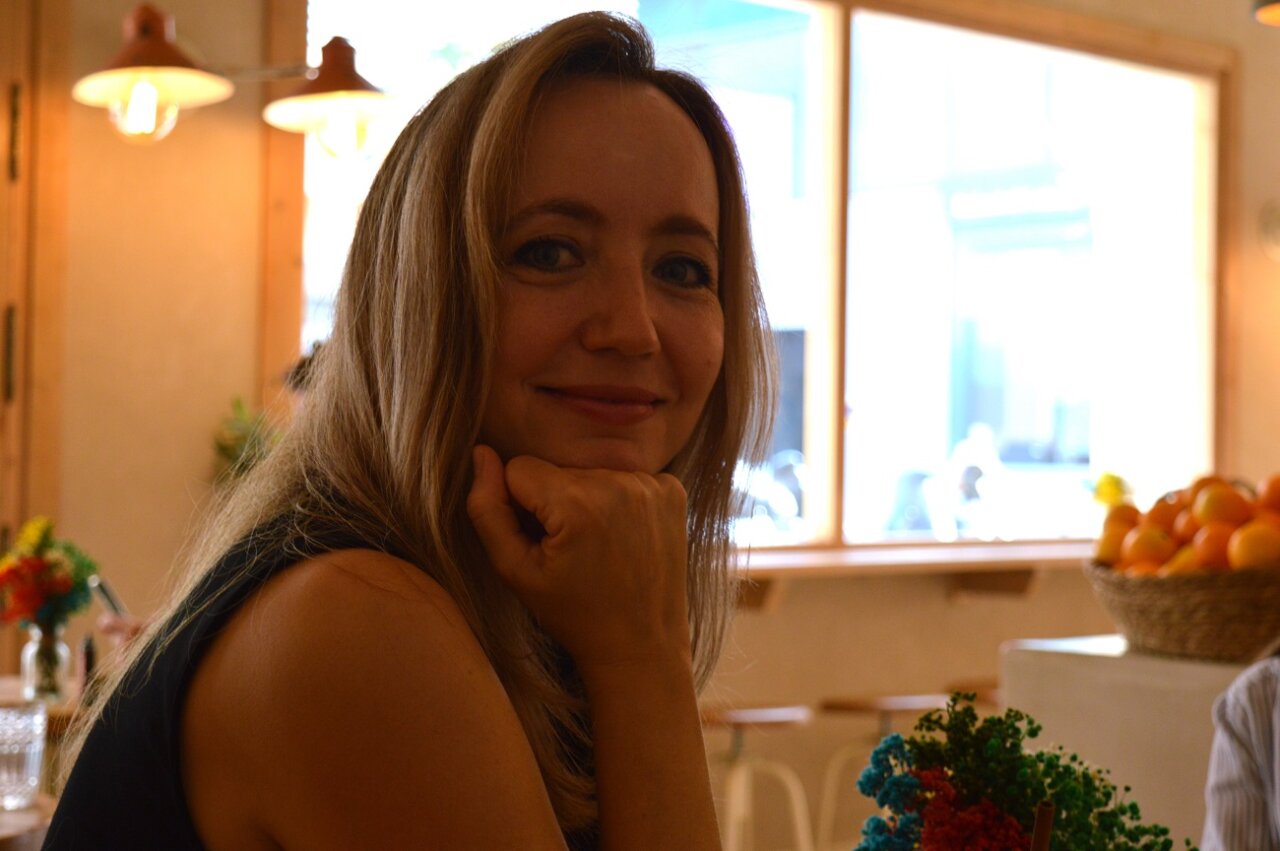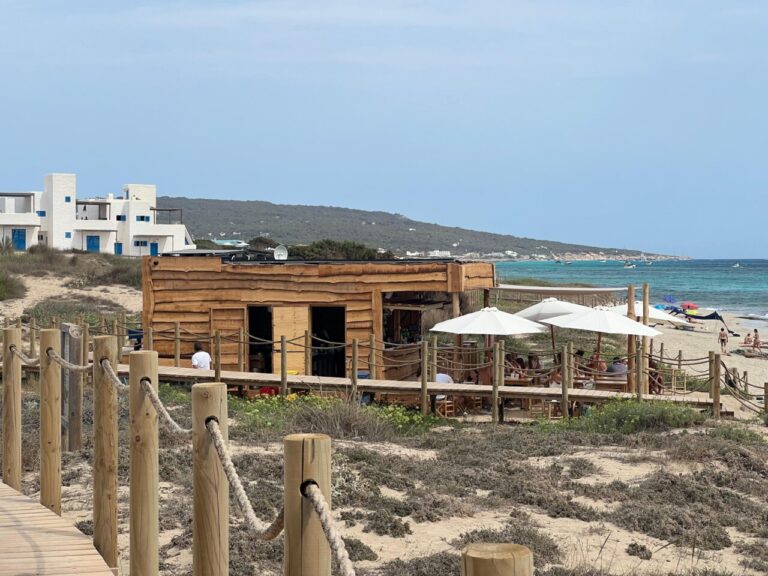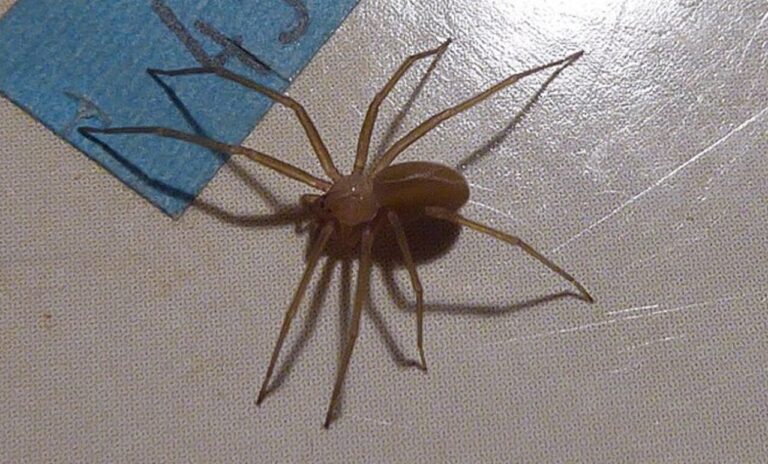Scrolling through the Instagram of Dit y Fet, by María José Amengual, is a risky sport. The images of the finished dishes, which she makes herself (yes, the dish and the photographs), tempt and a hunger that wasn’t there before threatens to appear. Also, even those who do not find themselves much in the kitchen, can take the risk of curiosity: curiosity to, based on her explanations, be encouraged to prepare recipes whether they are unfamiliar or familiar.
How does a practicing lawyer and university professor position herself as a gastronomic reference in Ibiza, the Balearic Islands and beyond? Or, as her daughter says she is, and we agree, “influencer“. Well, it’s a bit because of the opportunities that the internet has provided since its appearance, from blogs to the now reigning social networks. But the main ingredient is her love for cooking, which has always been there. María José remembers, as a child, reading (another of her passions) both novels and cookbooks.
In addition, she was “lucky” that her mother also loved to cook and that she loves “kitchen gadgets” which she also “loves”.
“My grandmother too, but she was more of a traditional cook in the sense that she learned from her mother and didn’t have any written recipes. My mother had a lot of books, she had gone to cooking courses. I remember that when I was little and friends came over or there were birthdays, my mother always made something special, things that at that time were not usual, like profiteroles or homemade strawberry ice cream. I also wanted to make those recipes, I read and my mother let me experiment“, she says, in an interview with La Voz de Ibiza accompanied by her daughter (also a lawyer) and with coffee in between.
Preserving traditional Ibizan recipes
However, despite her mother’s love and encouragement, when it came time to choose her career, María José followed the family tradition and studied law at the University of the Balearic Islands.At 18, you’re too young to decide what you’re going to do for the rest of your life. In any case, I didn’t know anyone who had studied to become a cook. I didn’t want to be a cook either. I have a lot of respect for the people who work in a restaurant kitchen, because I think that in terms of organization, work and dedication, it’s brutal”.
María José also loves movies and series. The talk turns to The Bear, an FX production about a chef who comes to take over his deceased brother’s restaurant. The story has a rhythm that transcends the screen and brings the audience closer to the intensity of life in the kitchen.
View this post on Instagram
But she is far from that. Despite her multiple activities, she is full of strength and love for everything she does, happy for the opportunities that come her way. She writes for national and international publications or, sometimes, if asked, sells the photos she takes of her dishes, and is now working with the Institut Estudis Eivissencs on a project to visit elderly people in different parts of the island and preserve recipes that are in danger of disappearing.
“They are Ibicencan recipes but not so well known. We go to the villages and interview older people. People of 80, 90 years old, or more, who tell me what they ate at home when they were young, how they prepared it or what was done at parties. They pass me the recipes and I have to reproduce it and tell what meaning that recipe has culturally. Sometimes the same recipe is prepared differently in two different parts of the island,” he explains.
All this is then published in El Pitiús.
In fact, María José began publishing purely Ibizan recipes and, little by little, she expanded.
The gastronomic influencer of Ibiza
-How did you start with Dit i Fet?
-Everyone knew that I liked to cook and when we went to a family meal or with friends I always brought something and they always asked me for recipes. My brother-in-law suggested me to make a blog, in 2008: “It’s easy, you put it there and whoever wants to consult it does it”. It started as something of mine, to keep my recipes together and organized.
At the beginning I didn’t even tell people that I had the blog, that it was mine. There was no picture of me. One day, a teacher at the school I was taking my children to asked me if I was the one from Dit i Fet and I couldn’t believe it. She was looking for the recipe for Ibizan egg stew, which is not very well known, she couldn’t find it anywhere and she found it there. I don’t know how she knew it. But, from that moment on, it started to spread that I was the one behind the blog. Eventually, I posted the first photo of me and people said: “Now we know who is behind it”. They also said they thought I was younger, or older, how funny! In the end, people like to know who is behind what they are publishing.
-The photos look professional, but you told me you took them yourself. Is it a natural talent?
-At the beginning it was very difficult, it ‘s not easy to take pictures of a plate. I took photography courses and started learning: the light, the framing… you end up getting the hang of it. My family knows what the photos involve (laughing with his daughter). I have corners in my house where I like to take them and I have different backgrounds that I have been setting up. Although I do it more and more easily, I make everything lighter. I would love to have a studio at home to make them, but it’s not possible. And besides the backgrounds I really like the tableware. If someone in my family buys a dish that I like, for example, they lend it to me so I can take a photo. I have an arsenal, it’s kind of addictive.

-Thinking only of these networking issues and leaving aside the previous, the important thing, which is the recipe and its preparation, you have entries in your blog in Spanish and Catalan. Are they automatic translations?
–Ibicenco is my family language. I started writing in the blog in Ibicenco. But little by little I have been expanding, today I have the information in Spanish and also in Catalan. The translations are done by me, little by little. As the blog is mine, I decide when I publish what I post, or what I stop posting.
-But with the tyranny of the algorithm, the type of content that has the most reach and so on, do you feel the pressure to publish?
-No, I publish because I like it, I don’t follow a pattern. I know there are colleagues who also have blogs or networks that are forced to maintain a rhythm of publication because otherwise, of course, Google or the networks penalize you and you don’t have as many visits. I don’t care. I publish a recipe when I feel like it and in general I am very disorderly in that sense. I’m not looking for followers or publicity or anything. I think that if someone follows me it’s because they like what I’m doing and that if one day I publish, they’ll see it, and if not, they won’t.
-How do you get along with hate?
-I have not suffered much. But I have blocked people that I know it’s impossible for them to be a person, that I know they are bots, spam. I’m not interested in leaving and therefore having one more follower.
-For the inexperienced, those who have had bad experience, those who don’t like to cook or those unfamiliar with the recipes you publish, let’s tell the truth: is it hard to cook well?
-And… I think sometimes it’s putting yourself. Sometimes you think things are complicated and then they are not so complicated. Cooking consists of four basic rules and if you master them, that’s it. Then there are things that are haute cuisine or that you need special equipment that is very difficult to have in a private home.
-What do you think of, for example, the Air Fryer?
-Look, the Air Fryer, for example, my mother bought it and told me: “Keep it, try it, and see if you like it. And I like it for doing some things. I think one of the first things I made with the Air Fryer was roasted peppers, which I love. And it’s super convenient and fast. So, I say: if today we have appliances that make your life easier, why not take advantage of them? If my great-grandmother had had an electric mixer, she wouldn’t have whipped the meringue with her arm, she had no choice.
Now, another thing is something I see a lot on the internet: recipes that tell you “do it in 5 minutes”. That’s all very well, but there are things that can’t really be done in 5 minutes. There are things that you have to leave them, that you have to confit them, little by little, that you have to mix the aromas, that are done from one day to the next. We live in the era of instantaneity and in that the networks play a role, nowadays everything has to be fast. Instagram is like that: pass a publication, another, pass, pass, pass, pass, stop in one and continue.
-Impossible not to ask, what is your favorite dish? Or, if it’s too difficult to choose one, let’s put it another way: what do you think you would like to have for dinner tonight?
-Agood potato omelette, well done. Or some fried eggs, with fried potatoes, garlic and fried peppers.
Ibiza, its culture and gastronomy
-Gastronomy is culture and you work to appreciate it, take care of it and spread it.
-Ibiza seems to be only disco, sun, beach, party, coming on vacation. But the Ibizan culture is a very rich culture. This is a place very rich in traditions, Ibiza is an island in the middle of the Mediterranean and many people have passed through here and we have enriched ourselves. In fact, we have to take into account that gastronomy is also part of our culture, that culture is not only what has happened historically. It is something that is happening and we are doing it and we have to maintain it. Life has changed, women work, we are no longer only at home cooking. Before, knowledge was transmitted, let’s say, from mothers to daughters. So sometimes it can be very difficult to maintain, to keep all this nowadays with the way society is organized. It is a shame that it is being lost.

-When youjoined the Academy of Gastronomy of Ibiza and Formentera, you spoke of the importance of women in the culinary transmission. However, today there are more male chefs than female chefs who achieve renown, what is your reading of this phenomenon?
-First of all, I want to say that it is an honor for me to be part of this institution that I think is necessary to help preserve all this culinary knowledge and pass it on to future generations, so they can see what we have, and why not, to expand it, because of course, recipes are also evolving, gastronomy also evolves. And as an academic I am eager to contribute, to contribute my vision as a woman, and as an Ibicencan, and the vision I have of gastronomy, our local gastronomy.
Going back to your question, when I made my acceptance speech, I thought: “What am I going to make a speech about, me?” Then I went to the page of the Royal Academy of Gastronomy, I looked and I saw words of scholars, of people who are talking about history. I wanted to talk about my gastronomy, about my island, and I thought about, on the one hand, the ingredients linked to the passing of the seasons. Nowadays, with globalization, we have an ingredient at any time, but in the past ingredients had to be consumed in season. And, on the other hand, it is true that it is striking that in gastronomy at the family level, the protagonist is the woman, and on the other hand, when you go out of that field and get to the professional level, those who are recognized chefs are men. Of course, there are good chefs who are women, and many women cooks, and many famous chefs, men, who have learned from their mothers who are cooks. In other words, this knowledge has also been passed on to them. I hope that little by little there will be more recognition of the role of women in gastronomy.










